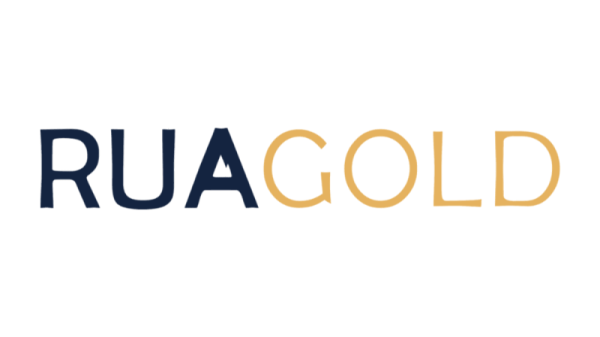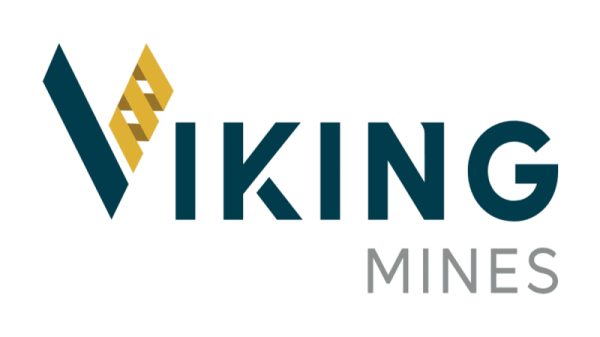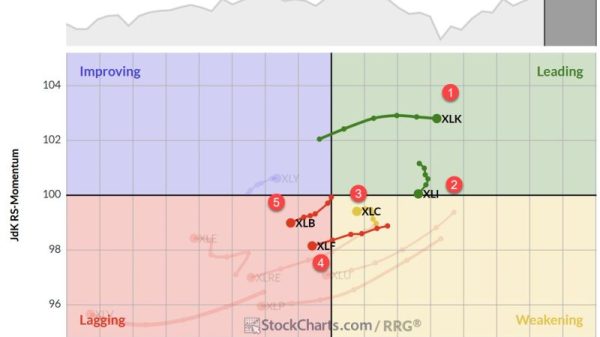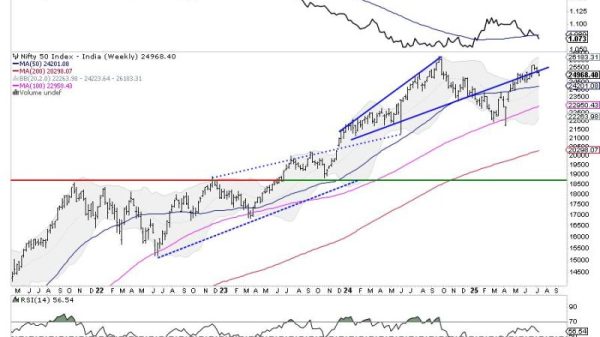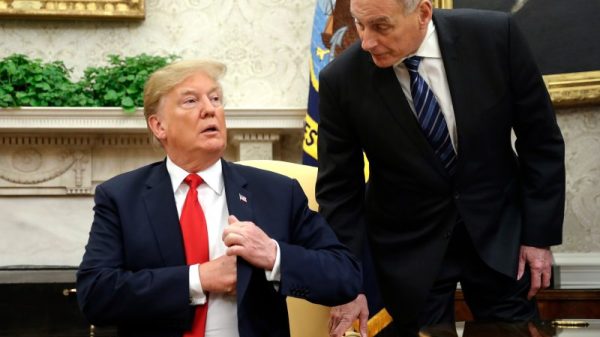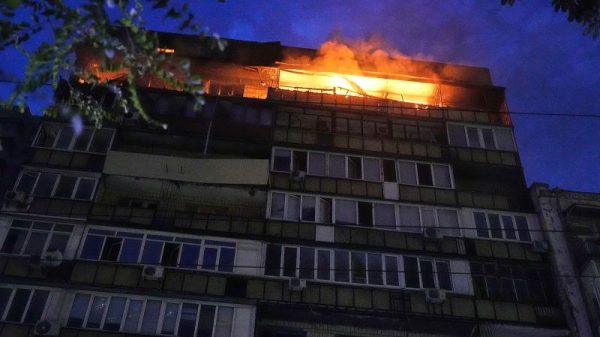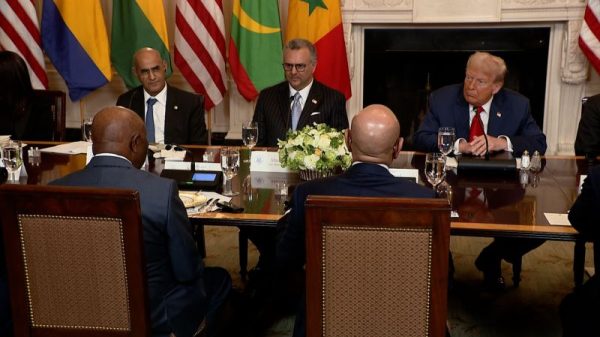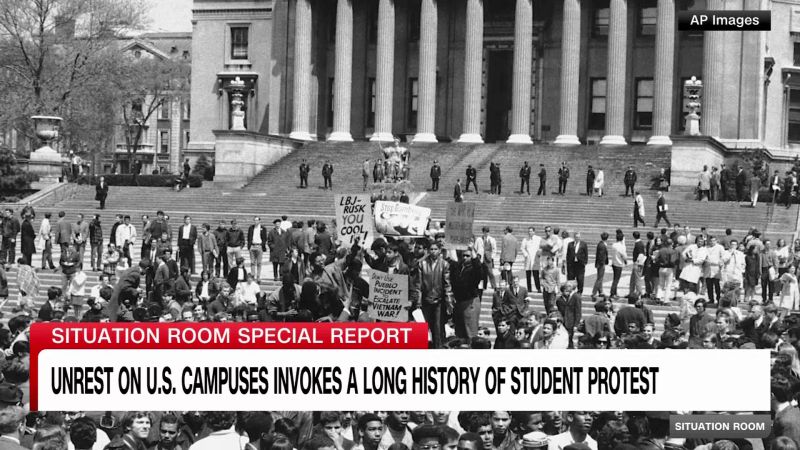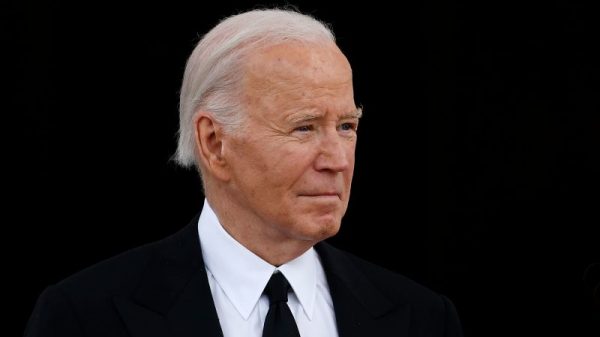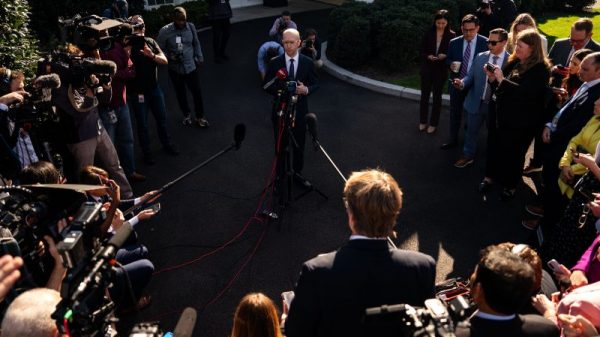Demonstrations in solidarity with Palestinians under Israeli siege in Gaza have spread across university campuses in the United States and around the world in recent weeks.
More than 2,000 people have been arrested at US campuses since April 18, amid polarized debates over the right to protest, the limits of free speech and accusations of antisemitism.
But while clashes and standoffs with police at New York’s Columbia University, Portland State and UCLA have captured global attention, demonstrations and sit-ins are also being held on campuses in parts of Europe, Asia and the Middle East.
And although demands among protesters vary at each university, the majority of demonstrations have called for colleges to divest from companies that support Israel and the war in Gaza.
The current war began on October 7 when Hamas militants killed more than 1,200 people in southern Israel and took more than 200 people hostage. Israel’s military response has since sparked a humanitarian catastrophe in Gaza that has inflamed opinion globally.
Israel’s seven month bombardment of Gaza has killed more than 34,600 people, according to the Gaza health ministry. Half of the 2.2 million people in Gaza are on the brink of starvation and man-made famine is imminent, according to a scale used by United Nations agencies. Concerns are also heightened over an anticipated Israeli military operation in southern Gaza’s Rafah, prompting renewed calls for a ceasefire.
Here’s a look at some of the pro-Palestinian campus protests around the world.
Australia
Over the past few weeks, pro-Palestinian protest camps have appeared in at least seven universities across Australia.
The University of Queensland in Brisbane has become a gathering point for rival camps pitched around 100 meters (328 feet) from each other – one populated by supporters of the Students for Palestine UQ, and another smaller cluster of tents with the Israeli flag among others strung between trees.
They were erected in solidarity with Palestinians under Israeli siege in Gaza and student protesters in the US, but some Jewish groups say they’re causing unnecessary tension on campus and Australia’s opposition leader has called them “racist” and “antisemitic.”
Students for Palestine UQ want the university to disclose all links to Israeli companies and universities and to cut ties with weapons companies.
So far, violent scenes that have erupted at universities across the US have not been repeated in Australia.
At the University of Sydney, about 50 tents line the quadrangle where up to 100 protesters are sleeping each night. On May 3, Jewish groups held a counter protest against what they said is “a disturbing trend of antisemitic and anti-Israel activities” at the university.
More than 200 people, some wearing Israeli and Australian flags, gathered at the Sydney campus, but there was no direct encounter between them and the pro-Palestinian group, which had urged followers to help them “defend” their camp.
United Kingdom
Pro-Palestinian protests have been held at universities across the United Kingdom since the early days of Israel’s war in Gaza, with some setting up encampments in recent days.
At Newcastle University, a small pro-Palestinian encampment has been set up on a lawn in front of the college’s buildings, video and pictures on social media showed.
The X account “Newcastle Apartheid Off Campus” shared images of their encampment, which shows around a dozen tents on the lawn, some adorned with Palestinian flags.
The group describes itself as a “student-led coalition fighting for an end to Newcastle University’s partnership with defense companies supplying Israel.”
Students in the English cities of Leeds, Bristol and Warwick have also set up tents outside their university buildings to protest the war in Gaza, according to PA news agency.
The campus protests in Britain have received criticism from some Jewish student groups amid calls for universities to take their duty of care to Jewish students more seriously.
France
In Paris, pro-Palestinian protests erupted at the Sciences Po university and the Sorbonne university in late April.
On Friday, riot police cleared the main hall of Sciences Po, with protesters shouting “shame!” and “free Palestine!,” though the removal otherwise appeared to take place calmly.
Dozens of students had begun a sit-in inside the university the previous day, prompting the closure of the campus, a Sciences Po spokesperson said. One protester said a student had begun a hunger strike in protest at the university’s response to “students wishing to support Palestine.”
Sciences Po is one of France’s most highly ranked universities and the alma mater of a slew of presidents including incumbent leader Emmanuel Macron. It has strong ties to Columbia University, where students have been staging widespread pro-Palestinian protests.
Amid the protests, the Ile-de-France region president said the university will no longer receive funding from the Parisian regional authority, “until serenity and security are restored to the school.”
Samuel Lejoyeaux, president of the Union of Jewish Students of France, called for more dialogue between protesters on both sides of the ideological divide.
In a piece for Le Monde newspaper on Thursday, he said pro-Palestinian protesters needed to do more to “clearly denounce anti-Semitism” but that sending in police was not the answer.
“I’ll never be happy to see CRS [riot police] entering a campus,” he wrote.“More than anything, I believe in dialogue. The great social advances in France have always been the fruit of militancy and debate,” he added.
India
Protests have been held at the prestigious Jawaharlal Nehru University (JNU) in New Delhi, in solidarity with students protesting at Columbia.
The protests coincided with an expected visit to the campus by US ambassador to India Eric Garcetti, which was postponed.
“JNU’s premises shall not provide a platform for administrations and personnel representing nations complicit in terrorism and genocide committed by Israel,” said a statement from JNU’s student union on April 29. The union has also expressed solidarity with protesters at Columbia.
JNU, one of India’s top universities, has been at the forefront of several protest movements, including 2019 demonstrations against a controversial law that critics say discriminates against Muslims.
Two student political parties at Jamia Milia Islamia University in New Delhi also expressed solidarity with pro-Palestinian protesters.
“We also denounce the stance taken by our BJP (Bharatiya Janata Party)-led government in supporting Israel, which deviates from India’s historical position,” said a statement from the Communist Party-affiliated Students’ Federation of India.
Canada
Protests against Israel’s war in Gaza have swept campuses across Canada.
At McGill University in downtown Montreal, pro-Palestinian student protesters have set up an encampment on the front lawn.
Like their counterparts in the US, students are demanding the college divest from companies with ties to Israel.
The university has attempted to disperse the protesters, saying it had requested police assistance after dialogue with student representatives failed to reach a resolution.
On May 2, a Quebec Superior Court judge rejected an injunction request that would have forced the pro-Palestinian protesters to leave their encampment.
Pro-Palestinian protesters have also set up encampments at the University of Toronto’s downtown campus and at the University of British Columbia in Vancouver, among others, according to public broadcaster CBC News.
Lebanon
Hundreds of students gathered at campuses in Lebanon in late April, waving Palestinian flags and demanding their universities boycott companies that do business in Israel, Reuters reported.
In the capital, images showed students at the American University of Beirut protesting the war in Gaza outside the gates.
Some protesters said they were inspired by protests on US campuses.
“We want to show to show the whole world that we have not forgotten the Palestinian cause and that the young generation – which is aware and cultured – is still with the Palestinian cause,” Ali al-Muslem, 19, told Reuters.
Israel’s military and Iran-backed Hezbollah militants in Lebanon have routinely exchanged fire since October 7. More than 300 people — mostly fighters — have died in Israeli strikes. Eight civilians have been killed in Hezbollah attacks in northern Israel since last October.


